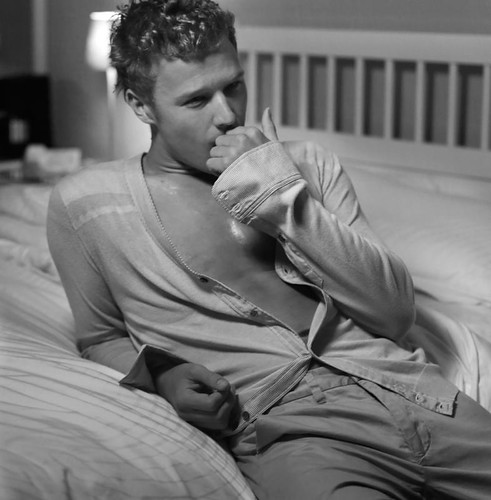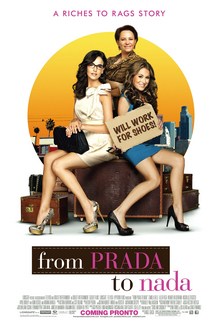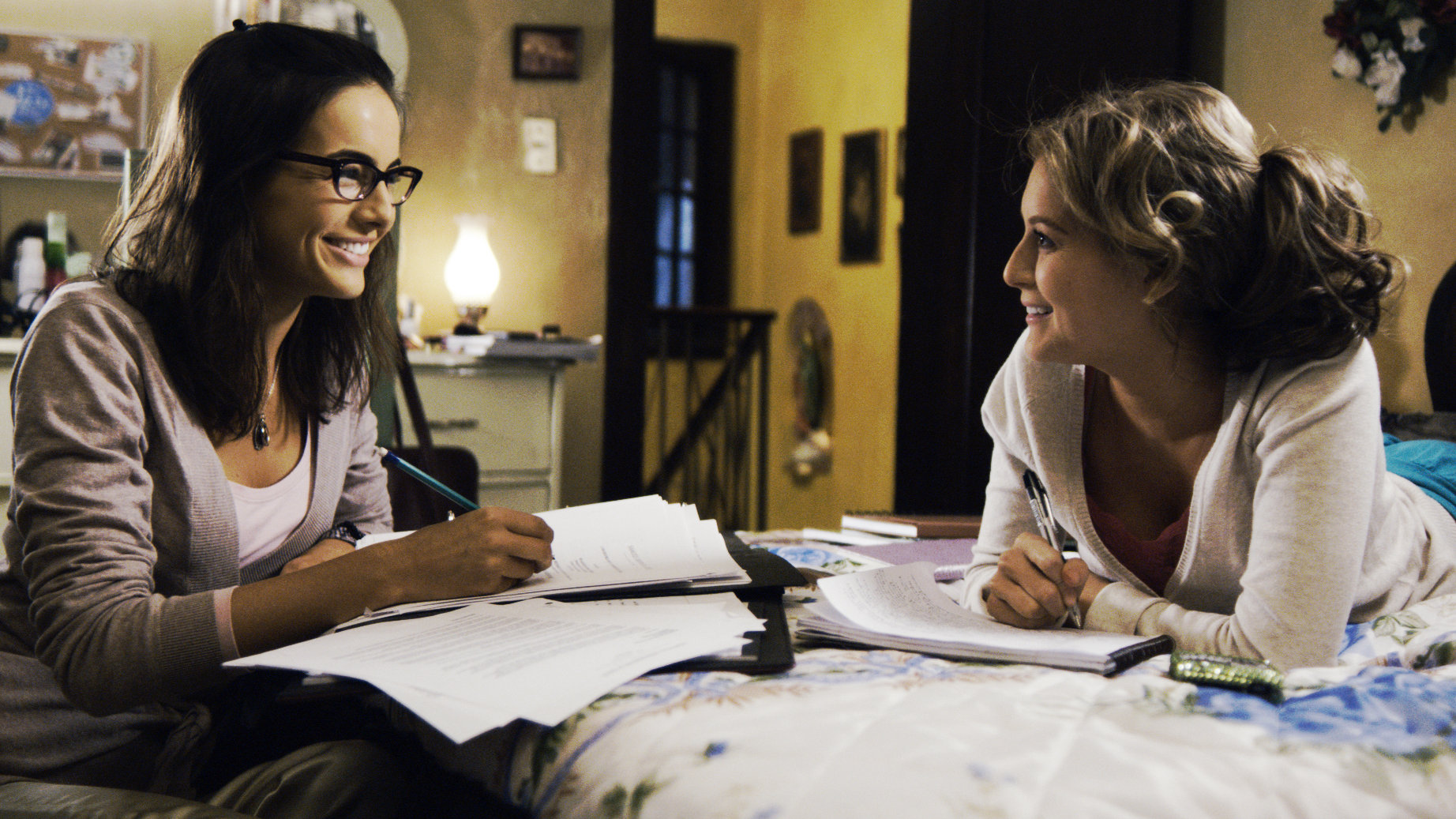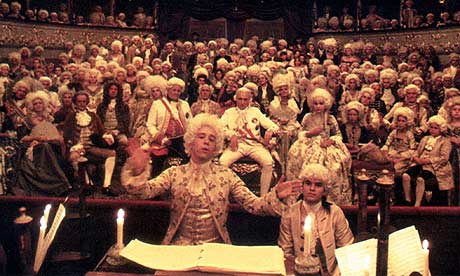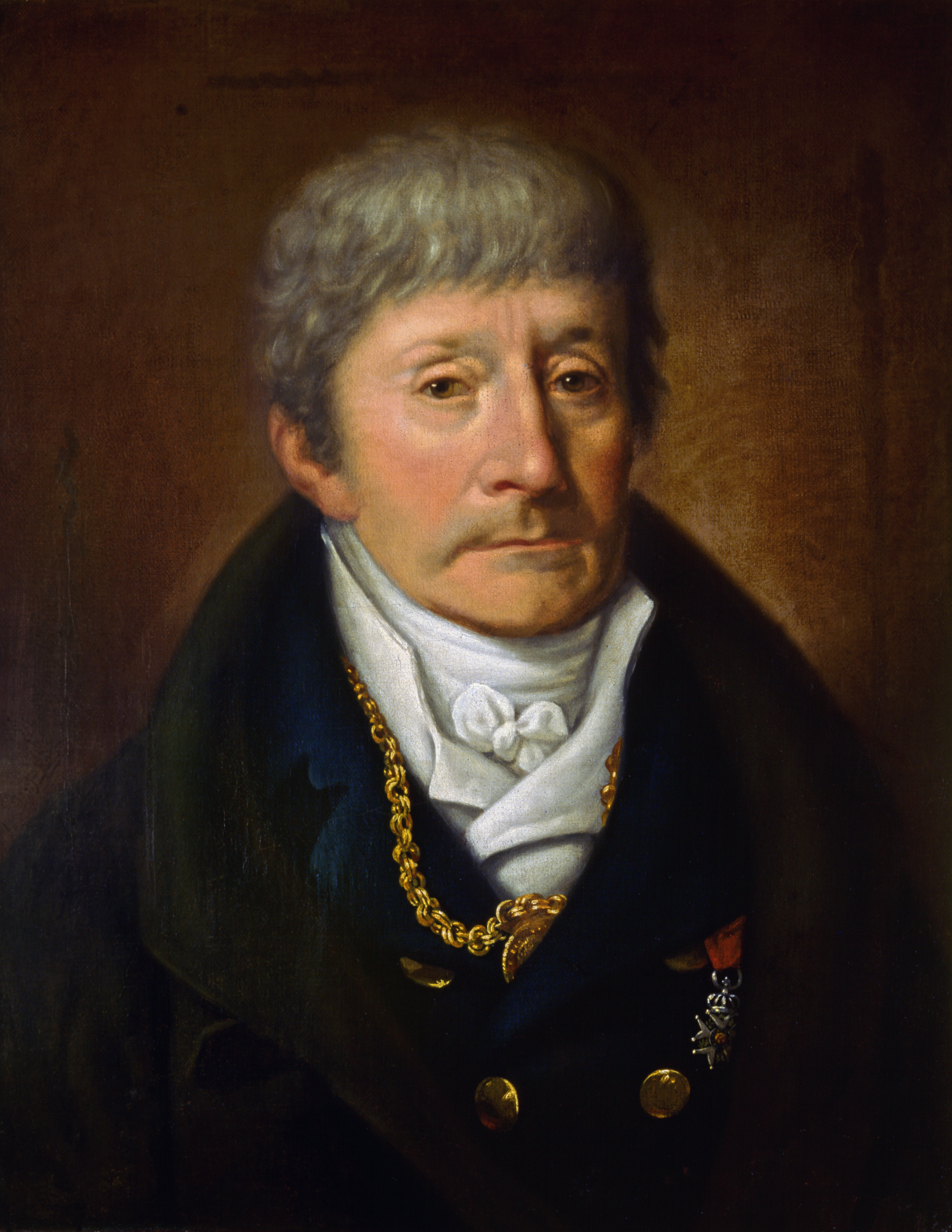Well, we now have put the Oscars to bed. Let us go over the winners as selected by the Academy of Motion Picture Arts & Sciences.
BEST PICTURE: The King's Speech
There wasn't a bad one in the lot. I expect a lot of people will say that the older Academy members pushed The King's Speech over the critically slobbered-over The Social Network because they are more traditional, and I expect some Academy members like Ernest Borgnine or Celeste Holm probably don't have Facebook pages.
I will grant that The Social Network was more contemporary to the times and The King's Speech more Oscar-fare (traditional subject, inspirational story). However, people may forget that The King's Speech was an extremely good film. It also had the blessing to come out late in the year. The Hurt Locker managed to beat the Winter Winner Theory (those films released at the end of the year end up winning Best Picture), but that I suspect was an outlier. Ultimately, the Academy ain't that hip though it's making progress on that front.
I will grant that The Social Network was more contemporary to the times and The King's Speech more Oscar-fare (traditional subject, inspirational story). However, people may forget that The King's Speech was an extremely good film. It also had the blessing to come out late in the year. The Hurt Locker managed to beat the Winter Winner Theory (those films released at the end of the year end up winning Best Picture), but that I suspect was an outlier. Ultimately, the Academy ain't that hip though it's making progress on that front.
BEST ACTOR: Colin Firth (The King's Speech)
There simply was no other way to go. Bridges won last year, having beating out Firth. Bardem already won and his film wasn't seen by many. Eisenberg was still doing his Jesse Eisenberg-character). Franco gave a great performance, but a bit young and given his appearance as host, a bit dazed. Again, we need to remember that Firth gave a brilliant performance as King-Emperor George VI, allowing us to see the man behind the Majesty.
BEST ACTRESS: Natalie Portman (Black Swan)
If Hailee Steinfeld had been here as she should have been, she might have either won or split the vote to get Bening to win a long-overdue Oscar. However, no sympathy vote for her. Kidman has already won and Rabbit Hole was little seen, Williams and Lawrence a bit young with both Blue Valentine and Winter's Bone also little seen). Besides, the Academy gravitates towards roles where a character triumphs over adversity (Daniel Day-Lewis in My Left Foot) or are crazy (Jessica Lange in Blue Sky). Firth took the Inspirational Oscar, and Portman took the Crazy Oscar. However, seeing Queen Amidala slowly go insane was a magnetic performance.
BEST SUPPORTING ACTOR: Christian Bale (The Fighter)
Only Geoffrey Rush was going to give Bale a run for his money. Bale is one of those actors that totally sinks into the character, and here he showed what a range he is: I doubt Rush could handle a Massachusetts accent. Bale's win should give lie to the idea that the Academy members are all resistant to the younger set. Rush would have won if it was going to be a sweep for The King's Speech, but Bale was just too good.
BEST SUPPORTING ACTRESS: Melissa Leo (The Fighter)
Again, another great performance. At least we know now that the show was on a seven-second delay thought it was not the reason the show ran too long. I think that by the time Leo had released her "Consider" ads too many votes had already come her way to be stopped. As good as Leo was, I would have preferred Hailee Steinfeld, and can only hope that she has a big career after True Grit.
BEST DIRECTOR: Tom Hooper (The King's Speech)
This was not indicative of a sweep but it was a bit of a surprise. Everyone's money was on David Fincher for The Social Network (perhaps possible consolation knowing that The Social Network faced resistance from older members), but Director and Picture tend to go together. As good as Fincher's work was, I think The Social Network was too cold a film for the older members to embrace.
I'll go out on a limb and say this will not rank as one of Oscar's mistakes, and we need to take this into account: out of the four acting honors, no one won from The Social Network and that film garnered only one acting nomination of its eight total nominations, while The King's Speech garnered three acting nominations out of the twelve it got.
I'll go out on a limb and say this will not rank as one of Oscar's mistakes, and we need to take this into account: out of the four acting honors, no one won from The Social Network and that film garnered only one acting nomination of its eight total nominations, while The King's Speech garnered three acting nominations out of the twelve it got.
BEST DOCUMENTARY FEATURE: Inside Job
While Exit Through the Gift Shop and Restropo were critically acclaimed, any film that bashes the Bush Administration, and the greed and evil it unleashed, tends to have a lock on Documentary Feature. Now that we're two years into the Obama Administration, these types of films will be around for a few more years, but eventually Bush-bashing will have to go wither away. I'm still waiting for documentaries where we can go back to bashing the Chinese occupation of Tibet.
BEST ANIMATED FEATURE: Toy Story 3
The Illusionist is a beautifully drawn picture and in the two-dimensional drawn style I tend to favor, but with the exceptions of Spirited Away and Wallace & Gromit: The Curse of the Were-Rabbit every other winner has been computer-generated (PIXAR having had a lock on the category for now-four years straight doesn't hurt). Personally, I favor hand-drawn animation because there is more artistry to it though I don't object to computer assistance, I do worry we're relying too much on computers to where we're dulling the audience to a more artistic look. As it was not going to win Best Picture, this is as far as Toy Story 3 could go.
BEST ORIGINAL SCREENPLAY: David Seidler (The King's Speech)
Inspirational, non-threatening, non-objectionable. Still, the true-life story of George VI and Lionel Logue was well-written, so I can't object to it. There's something wonderful about seeing the King-Emperor waltzing his speech. I feel for Christopher Nolan: the Academy keeps screwing him over. Maybe if he'd settled the spinning top question?
BEST ADAPTED SCREENPLAY: Aaron Sorkin (The Social Network)
I am one of the few people who thought all the critical love for The Social Network worked against it, and Sorkin's script was no different than something you'd see in The West Wing or Sports Night. To his credit, Sorkin believes he's a genius, so everyone else, except me, believes it too. This was one of those we expected, so I wasn't shocked.
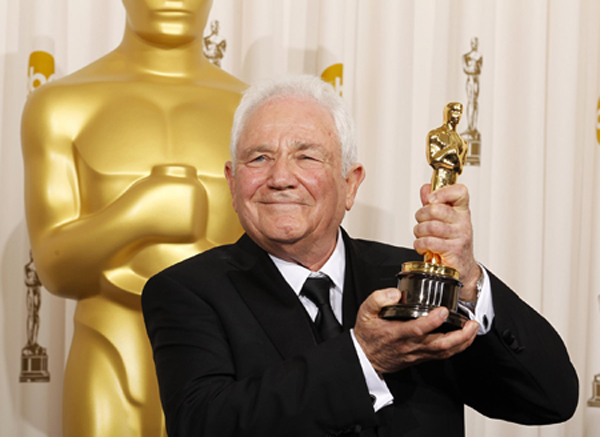 |
| David Siedler: Best Adapted Screenplay |
BEST CINEMATOGRAPHY: Inception
This is where I think the Academy was wrong. Granted, Inception is a visual feast, but I think True Grit was the better filmed of the nominees. I cannot believe True Grit lost this category, let alone actually went 0-10. I know I've had issues with the Coens, but even I think this was not a good choice.
BEST MAKE-UP: The Wolfman
As one of the few people who enjoyed The Wolfman, I am glad it won. Barney's Version did make Paul Giamatti look appropriately old, but Best Makeup tends to go to the one with the really big showcase, not the most subtle makeup work.
BEST ART DIRECTION: Alice In Wonderland
Not having seen it, I can't say whether it deserved it, but having seen clips, Alice In Wonderland is certainly the most lavish of the nominees, and the bigger the better is sometimes the Academy's mindset.
BEST VISUAL EFFECTS: Inception
Right, right, right! I think all the other nominees used the special effects in a way that called attention to themselves and Hereafter appears to have created only one big special effects number. Inception, on the other hand, did something I have long called for in the Visual Effects Department: serve the story.
BEST COSTUME DESIGN: Alice In Wonderland
Again, always go for the most lavish. Usually, these are the pictures that involve royalty (the last four winners were respectively Marie Antoinette, Elizabeth: The Golden Age, The Duchess, and The Young Victoria), so The King's Speech might have won. However, they weren't as splashy as another Queen--The Red Queen. Hence, Alice In Wonderland (although since it does involve some form of royalty, can my theory that films with monarchs in them winning Best Costume Design still hold?
 |
| Colleen Atwood: Best Costume Design |
BEST FILM EDITING: The Social Network
Well, I suppose all that bouncing back and forth between the past, when Facebook was created, and the future, the two depositions between Mark Zuckerberg vs. the Winklevoss Twins and Eduardo Saverin was good work. Personally, I think the blending of fact and fantasy in 127 Hours and the authentic-looking fight scenes in The Fighter were better, but I won't argue this one.
BEST ORIGINAL SCORE: The Social Network
Of all the things I remember about The Social Network, the music isn't one of them. The score for Inception while overbearing was more remarkable in my view, and The King's Speech a nice, elegant bit of music. Now I'll never be able to hear Nine Inch Nails without thinking Trent Reznor is an Oscar winner. Apparently, rock/rap stars are doing well in the music categories (Eminem, Three-6 Mafia, and now Reznor).Who says the Academy is stuffy? At least not in the music branch.
BEST ORIGINAL SONG: We Belong Together (Toy Story 3)
Again, I actually thought Toy Story 3 had no song. I'll have to watch it again. The absence of any song from Burlesque to my mind helped Randy Newman score his second Oscar, but I think the big surprise was how Zachary Levi managed to hold his own while singing. Personally, I think I See The Light from Tangled and Coming Home from Country Strong were better. I also think We Belong Together won't be as well-remembered as either You've Got A Friend in Me or When She Loved Me from Toy Story and Toy Story 2 respectively. Does anyone actually know how We Belong Together goes?
 |
| Eli Wallach: Honorary Oscar Winner |
As for the show itself, we saw that The King's Speech and Inception scored the same number: four each. It goes to show that the war between the old guard and the young Turks in the Academy is in full swing. On the one hand, you had the traditional Oscar-bait film. On the other, a revolutionary adventure into pure imagination, to quote the song.
Curiously, The Social Network got lost in the shuffle: only three Oscars, but when you had so many critics masturbate to The Social Network, it is remarkable that it got so rejected and slammed by the Academy.
Curiously, The Social Network got lost in the shuffle: only three Oscars, but when you had so many critics masturbate to The Social Network, it is remarkable that it got so rejected and slammed by the Academy.
Still, for those who think the Academy is too stuffy and old-school, let's remember that The King's Speech lost twice as many Oscars as it won. Four out of twelve is by no means a sweep. Inception, on the other hand, had as many wins as losses: an even split of four out of eight. By those standards, The Social Network did better than The King's Speech with three out of eight.
The big loser was True Grit losing all ten of its nominations. With its zero wins, it comes one short of tying The Turning Point and The Color Purple with the most nominations without a single win. True Grit still will rank high in number of Oscar losses.
The big loser was True Grit losing all ten of its nominations. With its zero wins, it comes one short of tying The Turning Point and The Color Purple with the most nominations without a single win. True Grit still will rank high in number of Oscar losses.
Finally, on the show itself. It was disingenuous to start playing the music for 'minor categories' like Adapted Screenplay (though it didn't trouble me none to see Aaron Sorkin told to basically shut up) while the Acting category winners were allowed to go on and on and on and in Leo's case, forget herself and be bleeped. To shame, to shame. As for the co-hosts, while watching the telecast with friends we all started wondering about James Franco.
I flat-out speculated that the Pineapple Express was still rolling on for him. He looked dazed and confused, and we weren't the only ones who wondered if he was drugged, because he just appeared out of it. No, that's not quite fair: Franco also looked bored, as if he was just too cool and important for the gig. I have a weak spot for Anne Hathaway and think she'll make a fine Catwoman, but while she sparkled she couldn't handle it by herself, and by Hour Two she basically had to do it by herself because Franco was there in body but not in mind.
The In Memoriam clip was nice though they are never as good as the ones made by Turner Classic Movies, which do include more people but it was nice to not hear applause whenever any particular person appeared. I personally would have preferred a musical tribute to Lena Horne than having Jeff Bridges tell all five women just how great they were in their films.
The In Memoriam clip was nice though they are never as good as the ones made by Turner Classic Movies, which do include more people but it was nice to not hear applause whenever any particular person appeared. I personally would have preferred a musical tribute to Lena Horne than having Jeff Bridges tell all five women just how great they were in their films.
An oddity was having the nominated songs be abridged leaving time for Portman and Bale to prattle on and on, to where the latter actually forgot his wife's name and introducing previous hosts Bob Hope and Billy Crystal just served as reminders of when the show was actually good. Pity about that. I didn't get the banter between Jude Law and Robert Downey, Jr. considering how ticked off Downey was when Ricky Gervais mocked him at the Golden Globes.
Allowing Kirk Douglas to go on and on while trying to make out what exactly he was saying bordered on the grotesque. He's a legend, and we love him and admire his courage to have come back after that brutal stroke. When he spoke upon receiving his own Honorary Oscar shortly after he was struck was one of the most beautiful and brave moments in Oscar history.
Now, seeing a man in his nineties hitting on women old enough to be his great-granddaughters while not being able to follow what he was saying was almost cruel.
Finally, I detested the fact that the Lead Actor and Actress nominees had these rhapsodic accolades about their performances which dragged the show after it came close to ending on time.
The general consensus is that Franco bombed, or perhaps was bombed, I'm still not sure, and it will be interesting to see how he handles the reviews. I expect a brave journalist to ask him while he promotes Your Highness with Best Actress winner Natalie Portman. I think it will be one of the low points in any biography, and goes to show that despite his upcoming Ph.D. he is still quite dumb. He's extremely talented, but apparently extremely dumb, and not quite the genius James Franco is being painted as, especially by James Franco.
Now, seeing a man in his nineties hitting on women old enough to be his great-granddaughters while not being able to follow what he was saying was almost cruel.
Finally, I detested the fact that the Lead Actor and Actress nominees had these rhapsodic accolades about their performances which dragged the show after it came close to ending on time.
The general consensus is that Franco bombed, or perhaps was bombed, I'm still not sure, and it will be interesting to see how he handles the reviews. I expect a brave journalist to ask him while he promotes Your Highness with Best Actress winner Natalie Portman. I think it will be one of the low points in any biography, and goes to show that despite his upcoming Ph.D. he is still quite dumb. He's extremely talented, but apparently extremely dumb, and not quite the genius James Franco is being painted as, especially by James Franco.
In short, I don't think the 83rd Annual Academy Awards were a complete disaster. It just could have been much better if
A.) Franco had shown up,
B.) they played off every winner,
C.) they allowed Honorary winners a greater presence (some of the best Oscar moments were the Honorary Oscar presentations to Satyajit Ray, Andrzej Wajda, and Jack Cardiff where we were allowed to see the sheer beauty and brilliance of their work. I digress to say that when I saw the short film for Ray, I was thoroughly stunned at the visual imagery and that moment was the first time I recognized film could be true art),
D.) Franco had shown up,
E.) they had not made the Best Actor/Actress nominees to be these spellbinding moments in film history,
F.) allowed for more of the Best Original Song and Score nominees to be heard,
G.) allowed Turner Classic Movies to do the In Memoriam film, and
H.) Franco had shown up.
I am if nothing an optimist, by which I expect the 84th Annual Academy Awards to be better.
A.) Franco had shown up,
B.) they played off every winner,
C.) they allowed Honorary winners a greater presence (some of the best Oscar moments were the Honorary Oscar presentations to Satyajit Ray, Andrzej Wajda, and Jack Cardiff where we were allowed to see the sheer beauty and brilliance of their work. I digress to say that when I saw the short film for Ray, I was thoroughly stunned at the visual imagery and that moment was the first time I recognized film could be true art),
D.) Franco had shown up,
E.) they had not made the Best Actor/Actress nominees to be these spellbinding moments in film history,
F.) allowed for more of the Best Original Song and Score nominees to be heard,
G.) allowed Turner Classic Movies to do the In Memoriam film, and
H.) Franco had shown up.
I am if nothing an optimist, by which I expect the 84th Annual Academy Awards to be better.

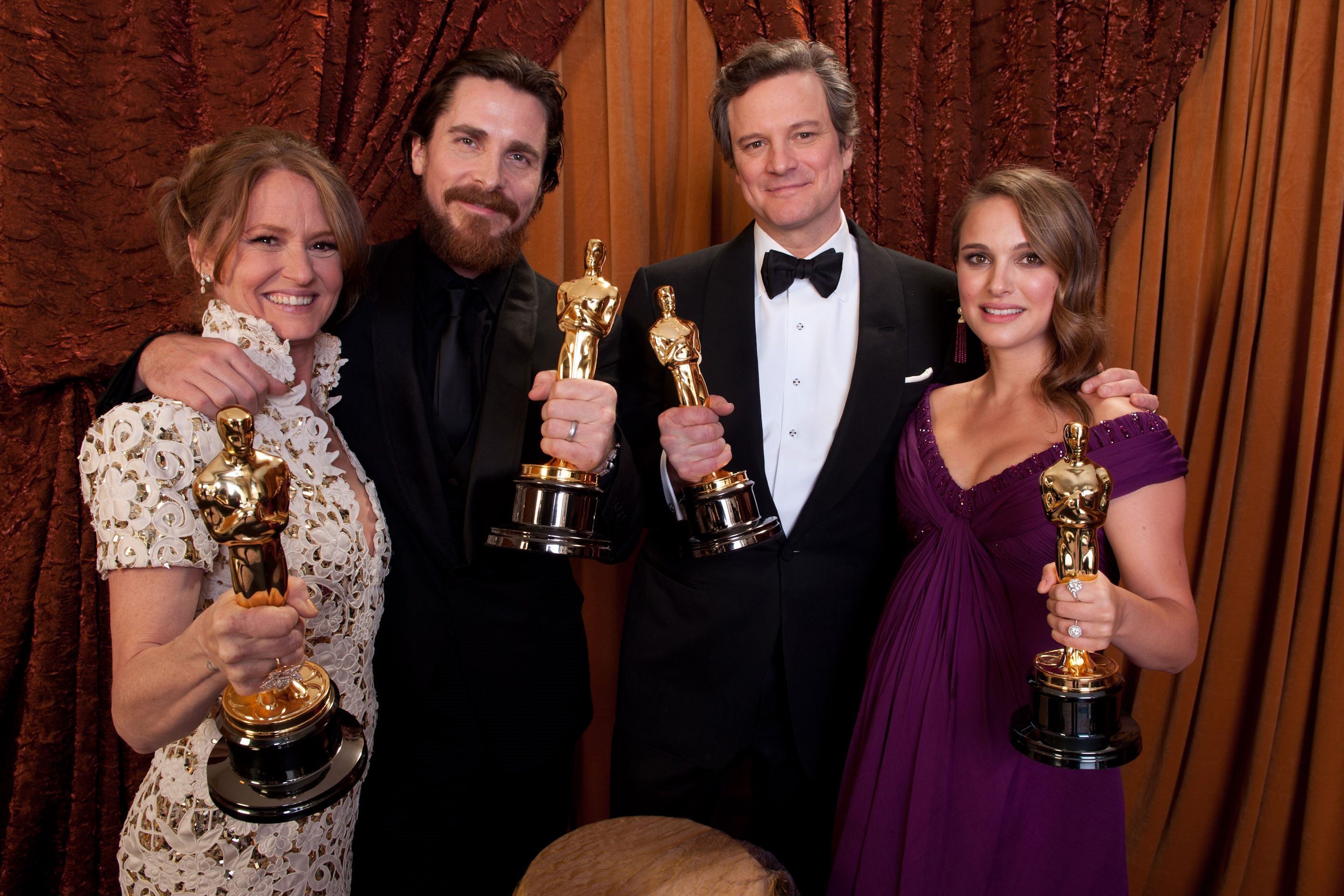
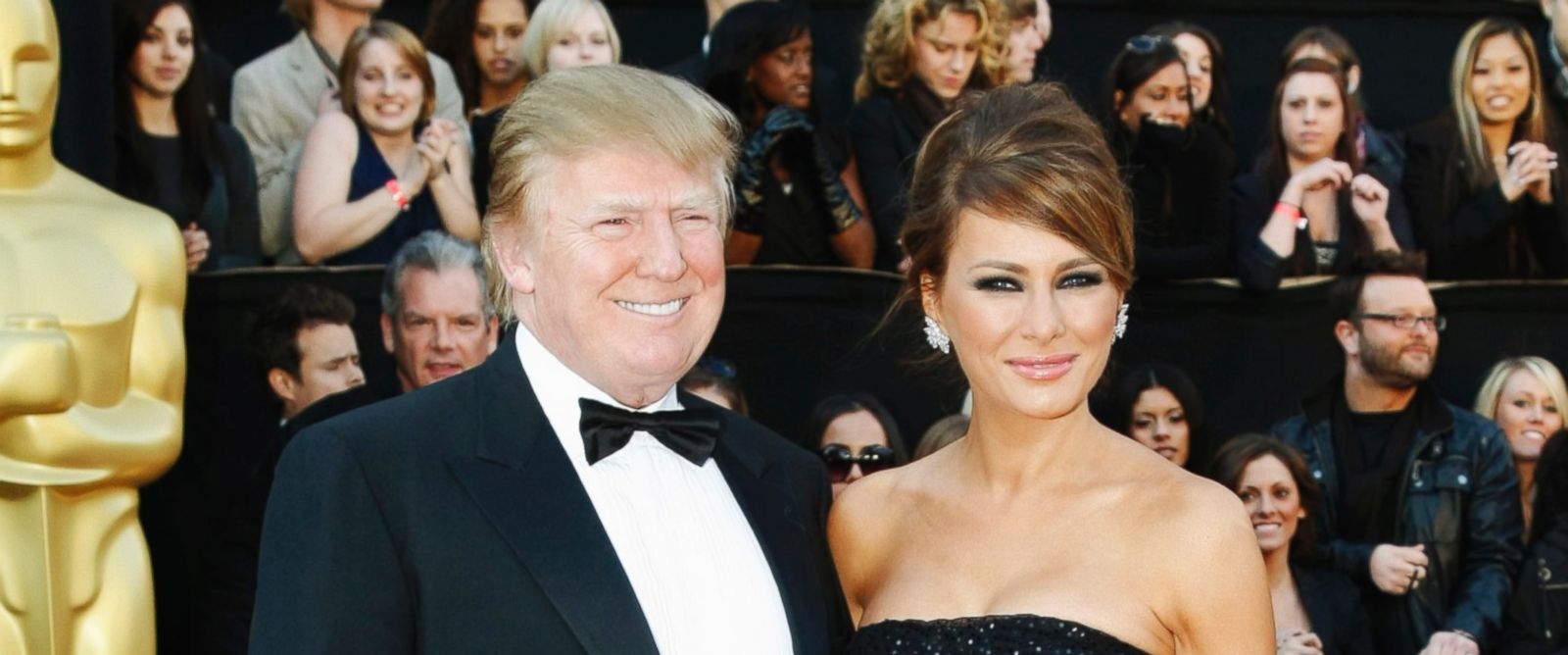










letters_to_juliet_26.jpg)
